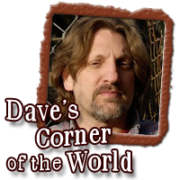Willner Times Three
Leonard Cohen: I’m Your Man [Lion’s Gate Films, (!!) for the video portion, Verve Forecast (–) for the musical soundtrack], however, is not totally a good thing. The music, performed at an Australian concert produced by Willner, suffers- not through any fault of his- but rather from the fact that Cohen’s own voice is the perfect vehicle for his songs. Cohen’s own new version of his Tower of Song with U2 is the best thing here musically. Others, which include rocker Nick Cave (a credible I’m Your Man) and Rufus Wainwright (a sweetly sung Chelsea Hotel #2” a dull Everybody Knows) do well enough and are certainly compelling performers visually, but none lend a new interpretation to songs that are best within Cohen’s limited range, a perfect match for his lyrical directness, in songs which tend to be resistant to being “prettied up” or rendered quirky as just about everyone here attempts to do. The rest of the movie fortunately contains interviews with Cohen, which are excellent, as is the commentary by the musical artists (such as Wainwright lovely and funny story about encountering an underwear-clad Cohen feeding an injured bird).
The 2-CD set Rogues Gallery: Pirate Ballads, Sea Songs and Chanteys [Anti] (!!) is much better, being that these are traditional songs that don’t in most cases have the burden of a definitive reading. Chanteys also tend to lend themselves very well to punkish treatment, having wild abandon and foul-mouthedness in common. There are plenty of “folkie” artists to be heard here, though- Richard Thompson, Martin and Eliza Carthy and fiddler Richard Greene to name a few. One of the better tracks, however, (as much as it pains me to admit it) is by mega-star Sting who leaves his ego behind to lend a gripping reading to Blood Red Roses. The aforementioned Wainwright and Bono likewise serve the songs nicely. These known artists indeed treat the songs as if they’re on board ship, trying to quell the boredom, a tribute to Willner’s solid guidance. While modern instrumentation is used, the arrangements are unfussy, the songs not self-consciously “rockified” or turned into something they’re not. A class job, all told.
But the pick of the litter is definitely the wonderful The Harry Smith project Revisited, a 4-disc music/DVD set [Shout Factory] (!!). Smith, though he loved the music of the south, was no typical folkie himself. An eccentric artist, painter and collector of found objects, his anthology of American music, released by Folkways in the early 1950s, had a profound influence on the emerging folk revival, as Bob Dylan, Joan Baez and the Kingston Trio, just to name a few, plumbed it for songs and inspiration. The original recordings were from his private collection. Smith felt that the songs (American roots music from country and blues to fiddle tunes, rags and hollers) told a story about America that was worth preserving, and since many old 78s were collected during WWII and melted down of records to contribute to the war effort, they became rare. Smith can be said to have rescued many of these recordings from obscurity.
It is the eccentric side of Smith that another diverse group of artists pays tribute to in these two discs of music and one DVD culled from concerts in London, Los Angeles and New York. Certainly this mish mosh of rock, jazz and avant garde stars had no sense of delicacy with the songs, but it’s amazing how many, while straying into left field, stayed true to the heart of them. David Thomas, head of Avant-punk band Pere Ubu, tears Fishin’ Blues limb from limb with an intense performance, but with old time fiddle underneath. Van Dyke Parks reaches the middle ground between earthiness and elegance on a lovely arrangement of fiddle tune Sail Away Lady with the Mondrian String Quartet. Odd combinations- jazz trombonist Roswell RuddSonic Youth, Philip Glass and DJ Spooky improvising soundtracks to Smith’s films, themselves hand-drawn, minimalist marvels- abound. Would Harry Smith approve? Cranky Harry probably wouldn’t approve of much, but the important thing is, whether sung by rocker Lou Reed accompanied by distorted electric guitar or by Blind Lemon Jefferson in the original Smith recordings (!!!, still in print and available on Smithsonian Folkways recordings- highly recommended!), songs like See That My Grave is Kept Clean live on. with
In addition to the musical performances (and more are excerpted there) the 4th disc, a documentary appropriately titled The Old Weird America, is about Harry Smith, his original anthology recordings and these new ones. Engrossing interviews with the musical performers include former New York Dolls lead singer David Johansen, who named his band The Harry Smiths, talking about the segmentation of modern music and how the inclusiveness of Smith’s music might still unite us all. When it continues to touch people from rockers to jazz virtuosos to young folkies (such bands as Nickel Creek and the Mammals have recorded songs from the Smith collection), he may just be right.
Rating scale:
[!!!]-Classic, sure to be looked back on as such for generations to come.
[!!]-Great, one of the year’s finest. If you have even a vague interest in the artist, consider this my whole-hearted recommendation that you go out and purchase it immediately.
[!]-Very good, with considerable appeal for a fan of the artist(s). If you purchase it, you likely won’t be disappointed.
[–]-Good/solid, what you would expect.
[X]-Avoid. Either ill-conceived, or artistically inept in some way.
Dave Soyars is a guitarist, electric bass player, a singer/songwriter, and a print journalist with over fifteen years experience. His column features happenings on the folk and traditional music scene both locally and internationally, with commentary on recordings, as well as live shows, and occasionally films and books. Please feel free to e-mail him at dave@soyars.com or write him c/o FolkWorks.













